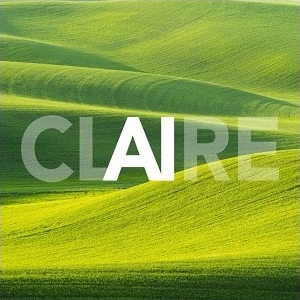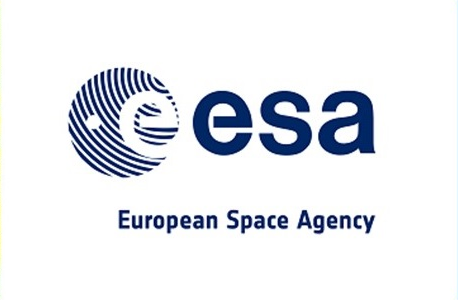PROGRAM
Session 1: AI & Space Exploration (Sess. chair: Sašo Džeroski, JSI & ESA/ESRIN PhiLab)
Starts at 09:00
| K1: 20’+6 |
Machine Learning for Space and Planetary Exploration |
 |
Kiri Wagstaff |
NASA/JPL, US |
| P1: 10’+3 |
Galaxai: machine learning for spacecraft operations |
 |
Matej Petković |
BVLabs/IJS, Slovenia |
| P2: 10’+3 |
Onboard and ground-based automated scheduling for the
mars 2020 rover mission |
 |
Steve Chien |
Caltech, US |
| P3: 10’+3 |
Using flexible execution, replanning, and model parameter updates
to address environmental uncertainty for a planetary lander |
 |
Daniel Wang |
JPL/Caltech, US |
| P4: 7’+3 |
Rover teleoperation through machine coaching |
 |
Loizos Michael |
OUC/RISE, Cyprus |
| P5: 7’+3 |
Artificial intelligence powered chatbot for the astronauts |
 |
Anitha S Pillai |
HITS, India |
| X1: 7’+3 |
Extending the autonomy envelope of space applications: a research path |
 |
Angelo Oddi |
ISTC-CNR, Italy |
Session 2: AI & Earth Observation A (Sess. chair: Bertrand Le Saux, ESA/ESRIN PhiLab)
Starts at 10:40
| K2: 20’+6 |
AI and Data Science in Earth Observation |
 |
Xiaoxiang Zhu |
TUM/DLR, Germany |
| P6: 10’+3 |
Aitlas: a toolbox of ai methods tailored for earth observation data |
 |
Ivica Dimitrovski |
BVLabs/FINKI, Slovenia/North Macedonia |
| P7: 10’+3 |
Transcoding-based self-supervised learning for semantic segmentation of polsar imagery |
 |
Ronny Hänsch |
DLR, Germany |
| P8: 10’+3 |
Scalable big data and deep learning techniques for copernicus data |
 |
Manolis Koubarakis |
UoAthens, Greece |
Session 3: AI & Earth Observation B (Sess. chair: Leon van der Torre, U of Luxembourg)
Starts at 12:00 noon
| P9: 7’+3 |
Combination of ai, semi-physical models, and in-situ data for earth observation applications |
 |
Mirta Pinilla |
Starlab, Spain |
| P10: 7’+3 |
Role of machine learning techniques for spatial interpolation of environmental variables |
 |
Chorapalli Jayendra Praveen Kumar |
ISRO, India |
| P11: 7’+3 |
Clustering geo-data cubes |
 |
Raul Zurita-Milla |
UoTwente, The Netherlands |
| P12: 7’+3 |
Cloud removal from satellite multispectral images using edge filtered mcgan |
 |
Andrzej Mizera |
University of Luxembourg, Luxembourg |
| K3: 20’+6 |
AI, Space Data and the Promise of Improved Planetary Stewardship |
 |
James Parr |
FDL/NASA/ESA, UK |
Session 4: AI for Astronomy & Space Events (S.Ch.: Dragi Kocev, BVLabs/JSI)
Starts at 14:15
| K4: 20’+6 |
AI in Space in an Age of Deep Industrial Transformation |
 |
Lucien Rapp |
University of Toulouse 1/HEC |
| P13: 10’+3 |
Separating stars from quasars: machine learning investigation using photometric data |
 |
Snehanshu Saha |
BITS Pilani, India |
| P14: 10’+3
|
Machine learning in heliophysical applications: the example of unsupervised solar wind classification |
 |
Jorge Amaya |
KULeuven, Belgium |
| P15: 7’+3
|
Aida: ai data analysis with application to the detection and prediction of space events |
 |
Giovanni Lapenta |
KULeuven, Belgium |
| P16: 7’+3
|
A deep learning approach to space weather proxy forecasting for orbital prediction |
 |
Emma Stevenson |
UP Madrid, Spain |
Session 5: AI & Space - Present and Future (S.Ch.: Sašo Džeroski, JSI & ESA/ESRIN PhiLab; Panel moderator: Cristiana Teixeira Santos, U of Luxembourg)
Starts at 15:45
| 20’+6 |
Artificial Intelligence in ESA: Vision, Strategy and Applications |
 |
Alessandro Donati |
ESA/ESOC, Germany |
| |
Panel: AI & Space - The Present, Lessons Learned, and the Future |
|
|
| 15'
|
Short position statements by the panel members |
|
Maxime Puteaux
Robert Zubrin
George Anthony Long
Claudia Muresan
Jorge Del Rio Vera
|
Euroconsult
Pioneer Astronautics
Legal Parallax
EC, DG DEFIS
UNOOSA
|
| 44'
|
Panel discussion |
|
|
Keynote talks are shown in bold. The presentation ID (K=keynote, P=contributed presentation) and duration of each talk (presentation+questions) in minutes are listed first. The overall schedule is given below. All times are CEST = GMT/UTC + 2:00.
OVERALL SCHEDULE
| 08:55 |
Conference opening |
5’ duration |
no break |
| 09:00-10:35
|
Session 1: AI & Space Exploration |
95’ duration |
5’ break |
| 10:40-11:45
|
Session 2: AI & Earth Observation A |
65’ duration |
15’ break |
| 12:00-13:06
|
Session 3: AI & Earth Observation B |
66’ duration |
69’ lunch break |
| |
Lunch break |
|
|
| 14:15-15:27
|
Session 4: AI for Astronomy & Space Events |
72’ duration |
18' break |
| 15:45-17:10
|
Session 5: AI & Space - Present and Future |
85’ duration |
no break |
| 17:10-17:15
|
Conference closing |
5’ duration |
the end |


